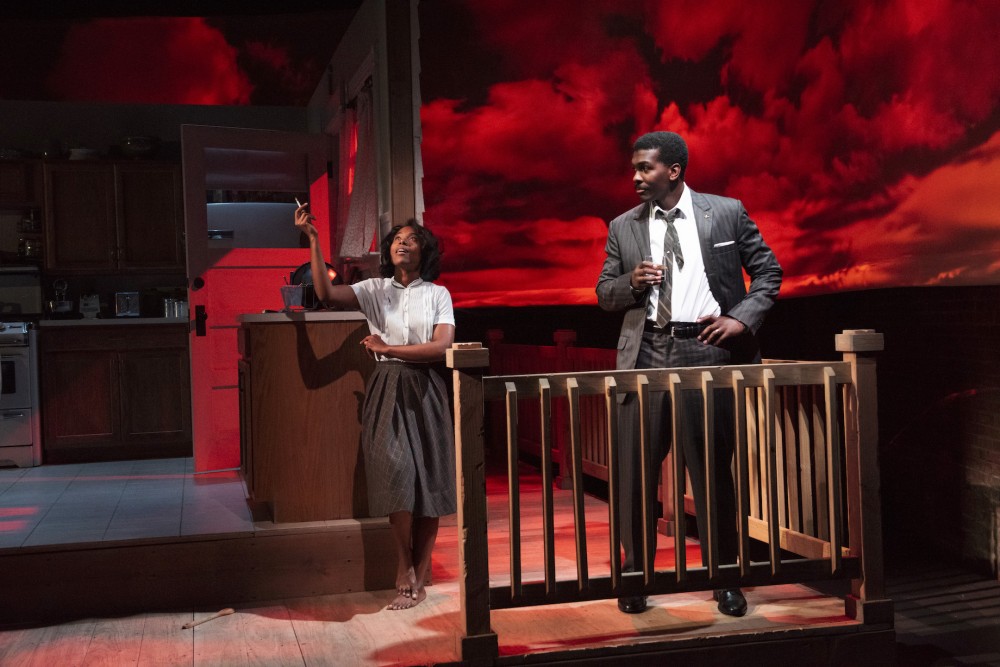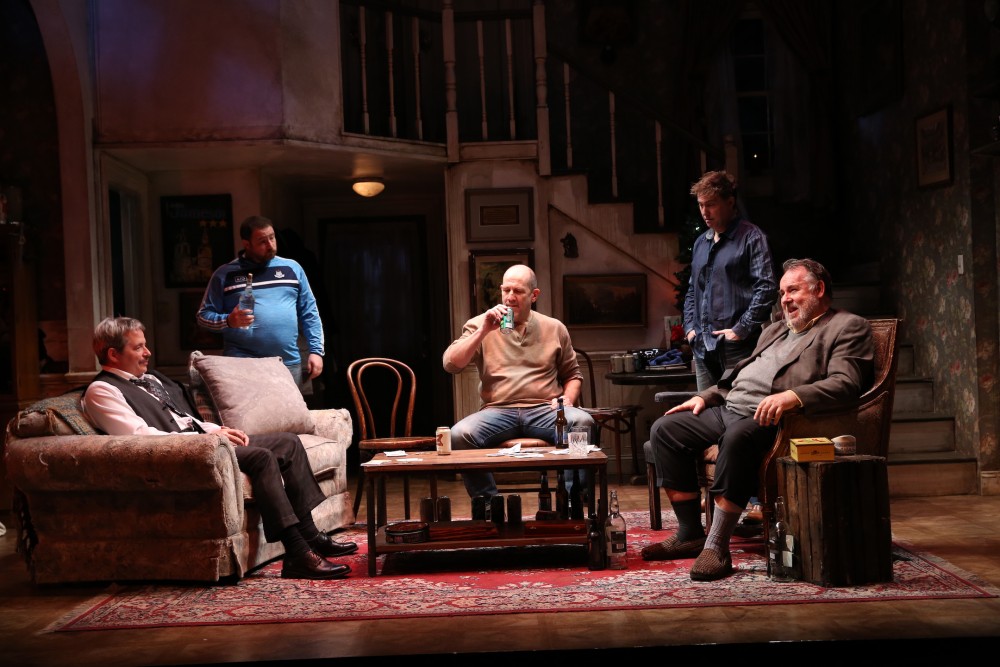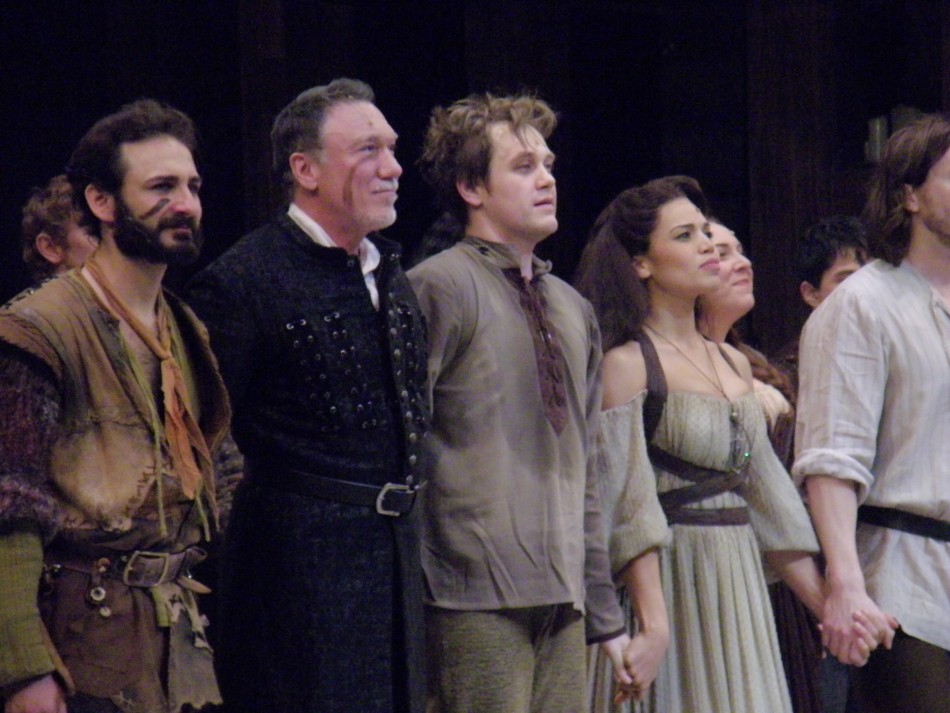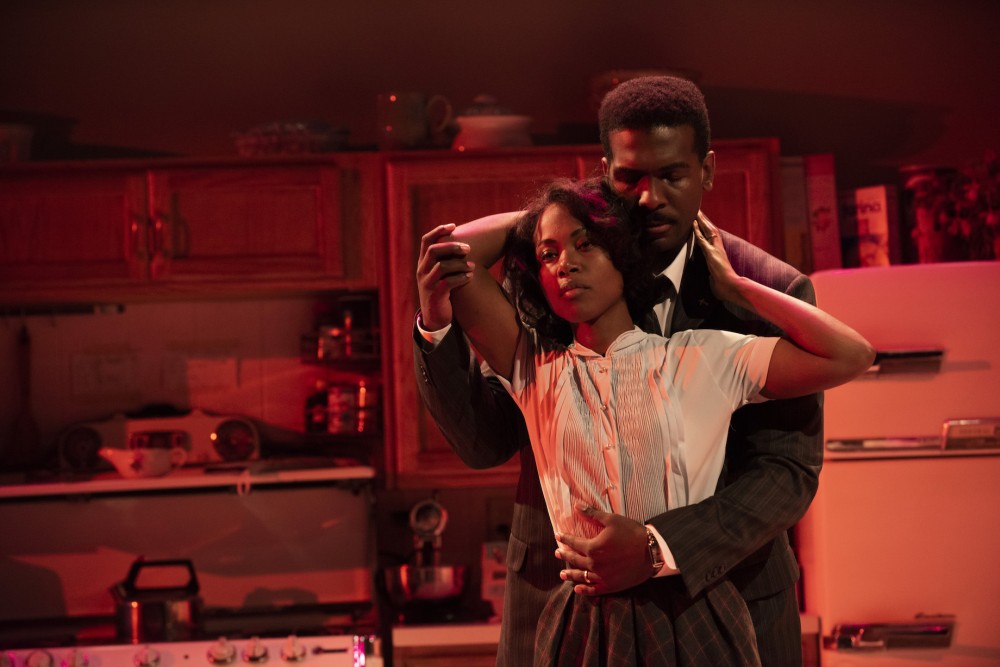
DeWanda Wise, Khris Davis
by Michael Bracken
Lovely and lyrical, Donja R. Love’s Fireflies, at the Atlantic Theater Company’s Linda Gross Theater, is disarmingly powerful. Don’t expect fireworks, but be prepared for pyrotechnics of a different sort: large (bombs) and small (fireflies).
The bombs exist primarily in Olivia’s (DeWanda Wise) mind, where they detonate at irregular intervals. How they got there is not explicitly stated, but it’s an easy guess. It’s 1963, the height of the Civil Rights movement, and people of color (both Olivia and her husband, Charles, are African-American) are getting bombed right and left, literally and figuratively. In fact, as the play begins, Charles (Khris Davis), a preacher in the mold of Martin Luther King, Jr., is returning from a trip to Birmingham, where four little girls were killed in an explosion at their church.
The fireflies are largely in Olivia’s mind as well. They are beacons of modest light, symbolizing flight and escape from the chains that hold us all—but most especially women of color—down.
Olivia and Charles have secrets. She smokes, and she hides it from him, though not very well. He drinks, and he hides it from her, but not even trying to do so well. As the drama progresses, we learn that he cheats on her pretty much whenever he’s out of town, which he often is.
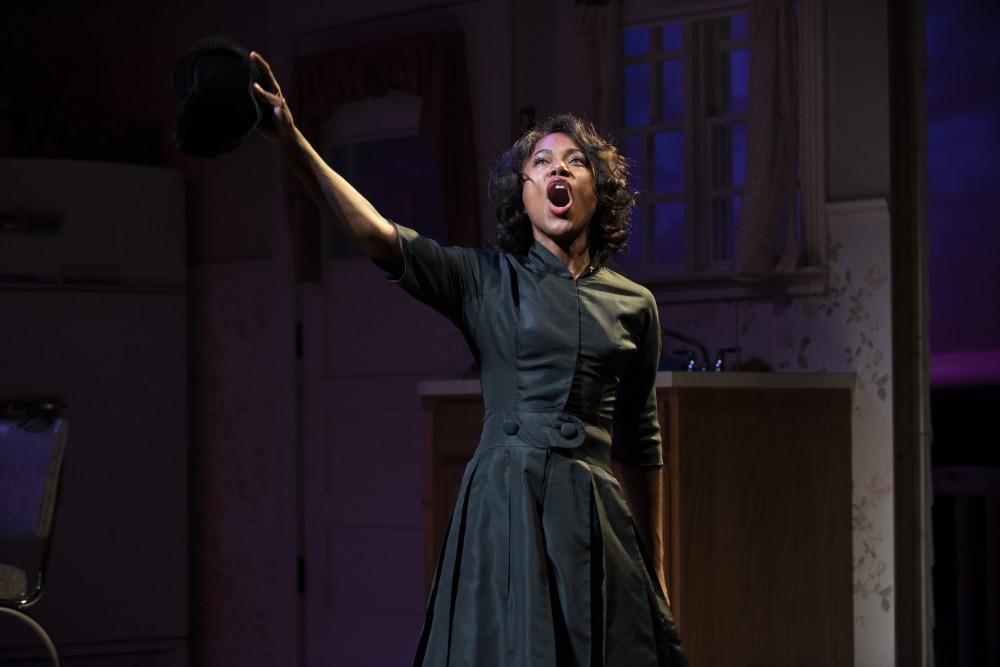

DeWanda Wise
She cheats on him as well, but as with the fireflies and bombs, it’s in her mind. One day, years ago, she met a woman named Ruby, whom she never saw again. They were not physically intimate; she has no idea how Ruby felt about her. Yet she fell in love. Ruby lives on in her consciousness, inescapable as a bomb, luminescent as a firefly.
Olivia writes to Ruby, one lover’s letter after another. She pours out her heart and soul. But she never mails them. They’re hers. They connect her to Ruby; they connect her to herself.
Charles finds them around the same time Olivia confirms he’s been cheating on her. So it’s tit for tat. That’s fine with Charles, but not with Olivia. She’s merely unearthed his side-door sex life. He’s penetrated into the deepest regions of her being, where visitors are not welcome.
While she’s not yet showing, Olivia’s pregnant. She doesn’t want the baby. Charles does. She says she’s going to get rid of it. Is she using the fetus inside her as a weapon against her husband? Perhaps. But it’s more of a shield. She doesn’t want the baby to rob her of what little sense of self she has.
As Charles returns to Birmingham, Olivia’s resolve to abort crystalizes into action, but it’s an uphill battle. Life conspires against her. The bombs and fireflies do not go away.
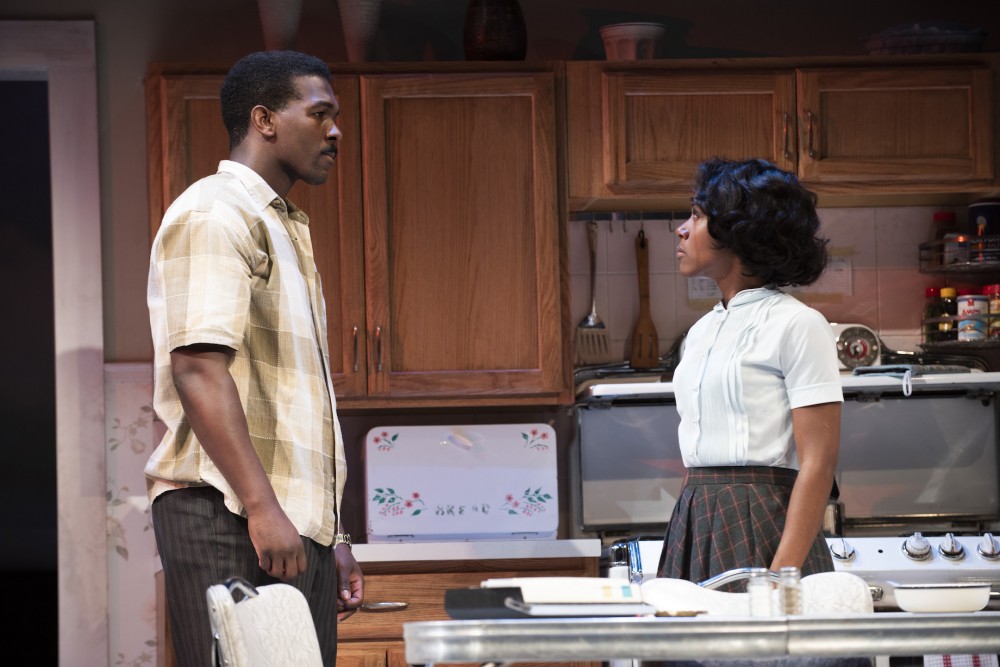

Khris Davis, DeWanda Wise
Wise is wonderful as Olivia. She maneuvers through the play’s twists and turns with understated grace, going with the flow. The enormity of Olivia’s inner conflict is kept inside, but bubbles to the surface when the bombs go off.
As Charles, Davis provides an excellent foil. He has the easy manner of a politician on the campaign trail, quick with a smile and a handshake. His infidelities were never intended to hurt Olivia, but what’s a fella to do? The women were there for the taking.
Saheem Ali’s direction is concise and exact. Arnulfo Maldonado’s single set, augmented by Alex Basco Koch’s celestial projections, presents a handsome but simple kitchen. It creates the right context, even if the washing machine seems a little old, and the cabinets a little new, for the early sixties.
Fireflies is more haunting than exciting. It’s the kind of play that stays with you after the curtain goes down, even though you may not realize it.
Fireflies. Through November 11, at the Atlantic Theater Company’s Linda Gross Theater (336 West 20th Street, between Eighth and Ninth Avenues). 90 minutes, no intermission. www.atlantictheater.org
Photos: Ahron R. Foster


